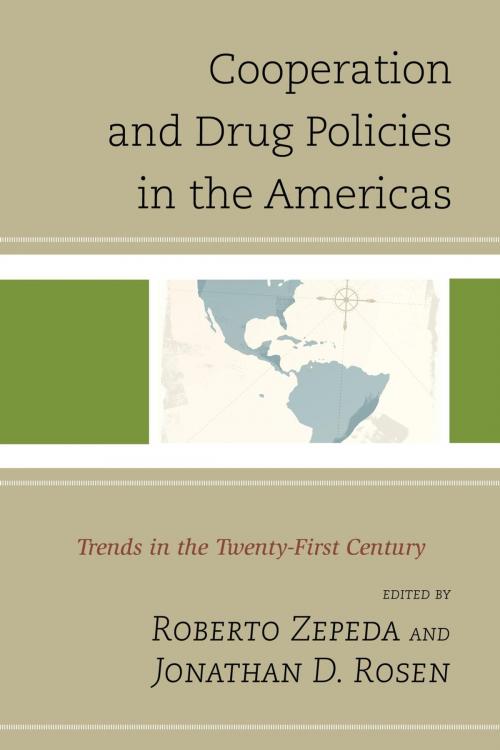Cooperation and Drug Policies in the Americas
Trends in the Twenty-First Century
Nonfiction, Social & Cultural Studies, Political Science, International, International Security, Government, Social Policy| Author: | Coletta A. Youngers, Cynthia McClintock, Roberto Zepeda, Betty Horwitz, Lilian Bobea, Jonathan D. Rosen, Peter Watt, Astrid Arrarás, Randy Pestana, Christa L. Remington, Ted Galen Carpenter, Marlon Anatol, Mark Kirton, Barnett S. Koven, Emily D. Bello-Pardo, Brian Fonseca, Jean-Claude Garcia-Zamor | ISBN: | 9780739195987 |
| Publisher: | Lexington Books | Publication: | December 18, 2014 |
| Imprint: | Lexington Books | Language: | English |
| Author: | Coletta A. Youngers, Cynthia McClintock, Roberto Zepeda, Betty Horwitz, Lilian Bobea, Jonathan D. Rosen, Peter Watt, Astrid Arrarás, Randy Pestana, Christa L. Remington, Ted Galen Carpenter, Marlon Anatol, Mark Kirton, Barnett S. Koven, Emily D. Bello-Pardo, Brian Fonseca, Jean-Claude Garcia-Zamor |
| ISBN: | 9780739195987 |
| Publisher: | Lexington Books |
| Publication: | December 18, 2014 |
| Imprint: | Lexington Books |
| Language: | English |
This volume examines drug policies and the role of cooperation in the Americas. Many current and former politicians have discussed the failures of the war on drugs and the need for alternative approaches. Uruguay as well as Colorado and Washington have legalized marijuana. The Organization of American states produced a report in 2013 which discussed alternative policy options to the drug war. This work examines the nature of cooperation and drug policies in the twenty-first century in the Americas, highlighting the major challenges and obstacles. The argument is that one country cannot solve drug trafficking as it is a transnational problem. Therefore, the producing, consuming, and transit countries must work together and cooperate.
This volume examines drug policies and the role of cooperation in the Americas. Many current and former politicians have discussed the failures of the war on drugs and the need for alternative approaches. Uruguay as well as Colorado and Washington have legalized marijuana. The Organization of American states produced a report in 2013 which discussed alternative policy options to the drug war. This work examines the nature of cooperation and drug policies in the twenty-first century in the Americas, highlighting the major challenges and obstacles. The argument is that one country cannot solve drug trafficking as it is a transnational problem. Therefore, the producing, consuming, and transit countries must work together and cooperate.















